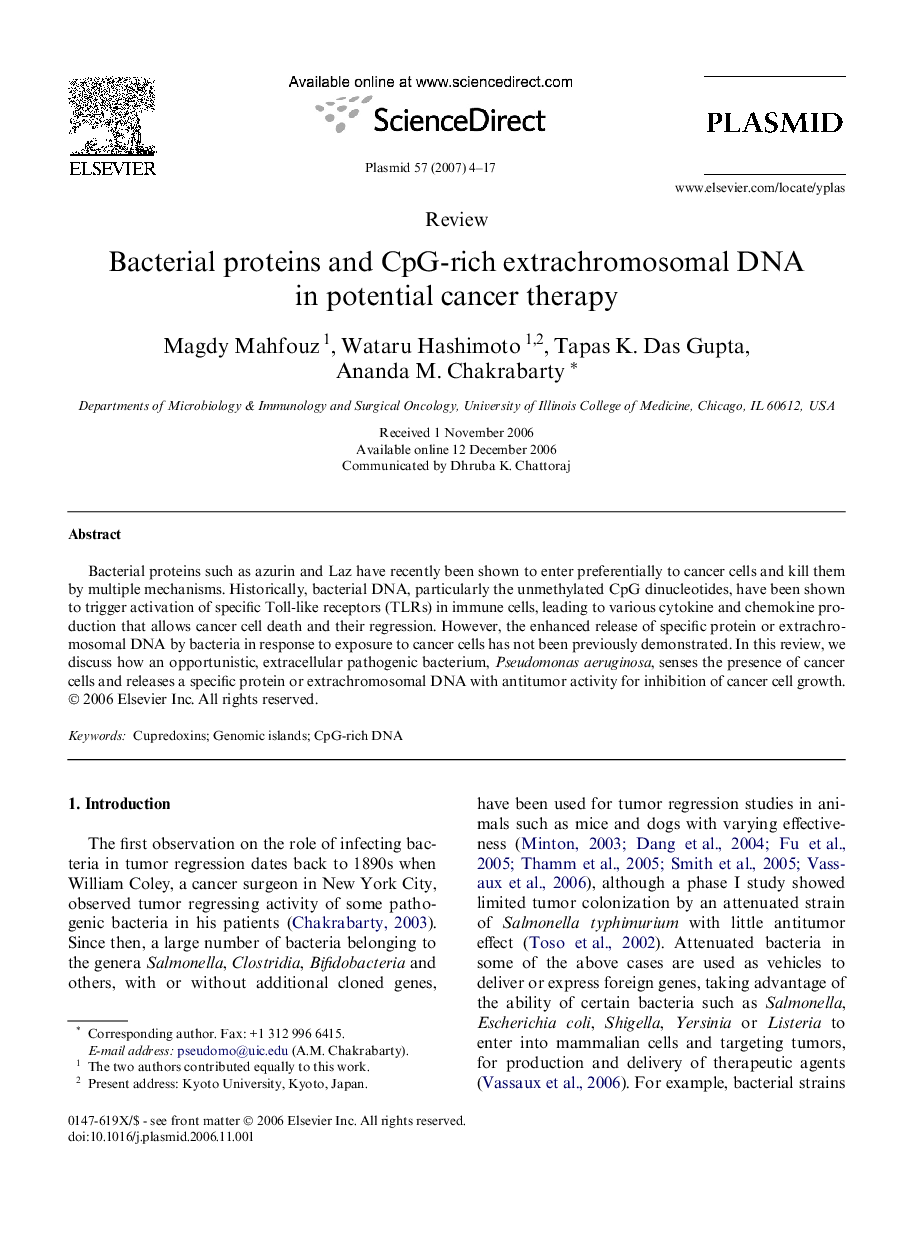| Article ID | Journal | Published Year | Pages | File Type |
|---|---|---|---|---|
| 2824493 | Plasmid | 2007 | 14 Pages |
Bacterial proteins such as azurin and Laz have recently been shown to enter preferentially to cancer cells and kill them by multiple mechanisms. Historically, bacterial DNA, particularly the unmethylated CpG dinucleotides, have been shown to trigger activation of specific Toll-like receptors (TLRs) in immune cells, leading to various cytokine and chemokine production that allows cancer cell death and their regression. However, the enhanced release of specific protein or extrachromosomal DNA by bacteria in response to exposure to cancer cells has not been previously demonstrated. In this review, we discuss how an opportunistic, extracellular pathogenic bacterium, Pseudomonas aeruginosa, senses the presence of cancer cells and releases a specific protein or extrachromosomal DNA with antitumor activity for inhibition of cancer cell growth.
